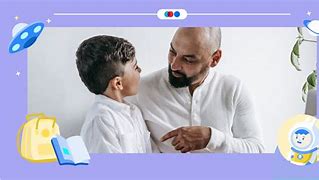How to Discipline Children Effectively Without Punishment: A Guide to Positive Parenting
Parenting is a rewarding but challenging journey. One of the biggest hurdles for parents is learning how to effectively discipline their children without resorting to punishment. Punishment can have negative long-term effects, impacting a child’s self-esteem and relationship with their parents.
This guide provides a comprehensive look at effective discipline strategies that focus on positive parenting techniques. By understanding the principles of positive parenting, parents can foster healthy behaviors and a strong parent-child relationship.
Understanding the Purpose of Discipline: Setting the Stage for a Positive Approach
Discipline, at its core, aims to teach children about right and wrong behavior. It’s not about control or power; it’s about helping children develop self-control and make responsible choices. Instead of focusing on punishment, positive parenting emphasizes guidance, understanding, and teaching.
Building a Strong Parent-Child Relationship: The Foundation for Effective Communication & Cooperation
A strong parent-child relationship is vital for effective discipline. When children feel loved, respected, and connected to their parents, they are more likely to cooperate and respond positively to guidance. Spend quality time with your kids, engage in meaningful conversations, and demonstrate empathy.
The Power of Positive Reinforcement: Rewarding Desired Behaviors for Long-Term Impact
Positive reinforcement is the key to encouraging desired behaviors. When children exhibit positive behavior, acknowledge and reward them. This could be through verbal praise, small gifts, special privileges, or quality time together. By recognizing their good behavior, you reinforce it and make it more likely to occur again.
Setting Clear Expectations and Boundaries: Providing Structure and Guidance for Children
Children thrive on structure and predictability. Establish clear rules and expectations, and consistently enforce them. By having well-defined boundaries, children understand what is acceptable behavior. This helps them learn self-control and provides them with a sense of security.
Communicating Effectively with Children: Active Listening, Clear Language and Respectful Dialogue
Effective communication is crucial for positive parenting. Engage in active listening when your child speaks, trying to understand their perspective. Use clear and concise language to explain expectations and consequences. Encourage respectful dialogue and allow your child to express their feelings.
Using Natural and Logical Consequences: Teaching Responsibility and the Impact of Choices
Natural and logical consequences allow children to experience the natural result of their actions. For example, if a child forgets their homework, a natural consequence might be missing a fun activity. Logical consequences are tied to the behavior, such as losing screen time for breaking a rule.
Time-Outs and Redirection: Managing Challenging Behaviors in a Calm and Constructive Manner
Time-outs can be an effective strategy for managing challenging behaviors. When a child is getting upset or out of control, use a time-out to give them a chance to calm down and regain control. Redirection can also be helpful, by gently guiding a child towards a more appropriate behavior.
Problem-Solving Together: Empowering Children to Take Ownership and Find Solutions
Encourage your child to be part of the solution-finding process. Instead of imposing solutions, involve them in brainstorming ideas and finding ways to make amends. This fosters a sense of responsibility and empowers them to take ownership of their actions.
Empathy and Validation: Understanding and Acknowledging Children's Feelings
It’s essential to validate your child’s emotions, even if you don’t agree with their behavior. When they express feelings like frustration or anger, acknowledge them without judgment. This helps them feel heard and understood, leading to better communication and problem-solving.
Consistency and Patience: The Key to Building Lasting Positive Behavior Patterns
Consistency is key to success. Stick to your rules and expectations, even when it’s challenging. Patience is also vital. Children learn and grow at their own pace. Remember, consistency and patience will pay off in the long run.
Conclusion
Effective discipline without punishment isn’t about being lenient; it’s about creating a strong parent-child relationship where children feel safe, respected, and empowered. By focusing on positive reinforcement, clear communication, and collaborative problem-solving, parents can guide their children towards responsible behavior and positive development.
Frequently Asked Questions
Q: What if my child is acting out and nothing seems to work?
A: It’s important to consult with a child psychologist or therapist if you’re struggling with managing your child’s behavior. They can provide guidance and support tailored to your child’s needs.
Q: How can I be consistent when I’m tired and stressed?
A: Remember that you’re not alone. It’s okay to ask for help. Reach out to family, friends, or support groups for assistance. Taking care of your own well-being is crucial for effective parenting.
Q: What are some examples of natural consequences?
A: If a child doesn’t put away their toys, they might trip over them. If a child doesn’t finish their homework, they might miss out on a fun activity.
Q: What are some alternatives to time-outs?
A: Take a break together, engage in a calming activity, or talk about what happened and how to make better choices next time.
Q: What if my child’s behavior is dangerous or harmful?
A: Always prioritize the safety of your child and others. If you have concerns about your child’s behavior, seek professional help.
This comprehensive guide provides you with the tools to discipline your children effectively without resorting to punishment. By building a strong, positive relationship, communicating effectively, and utilizing positive reinforcement techniques, you can create a nurturing environment that fosters responsible and happy children.

